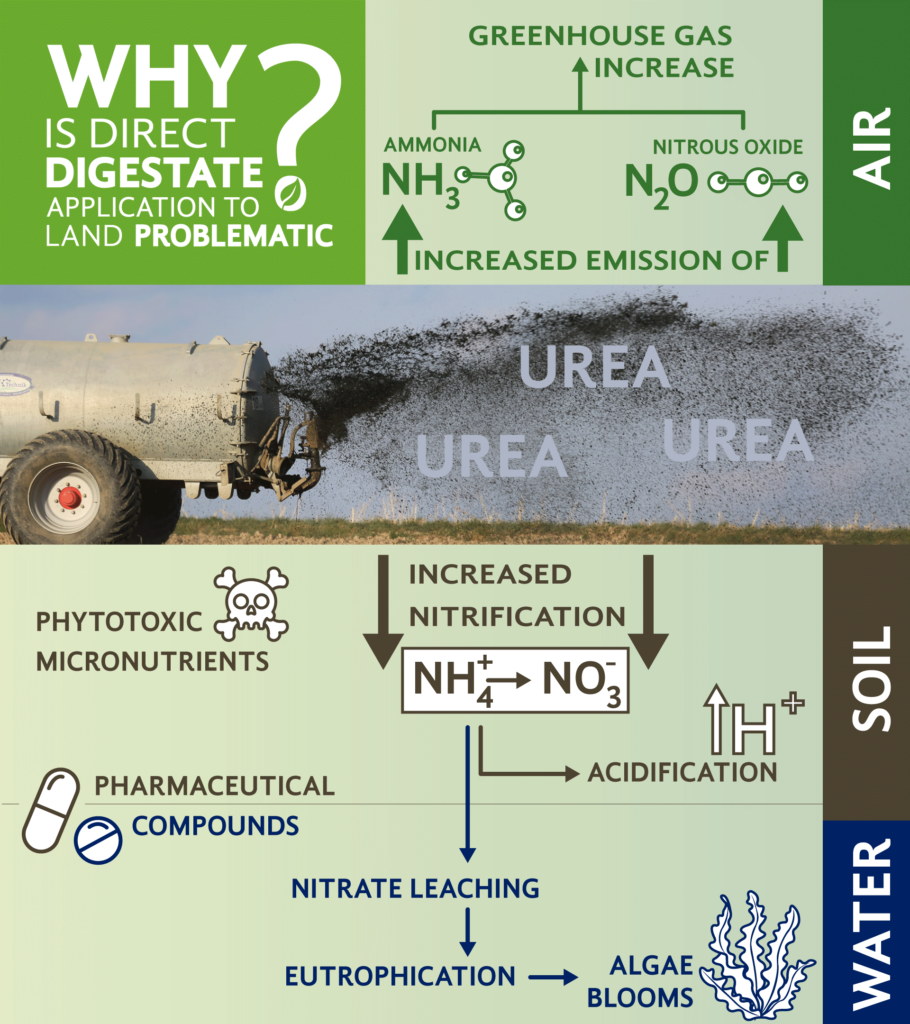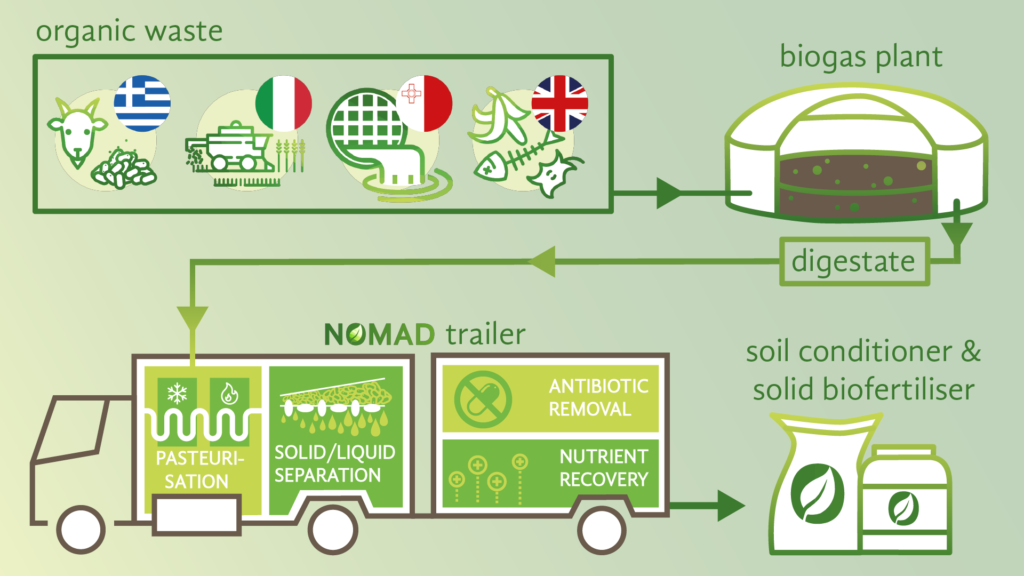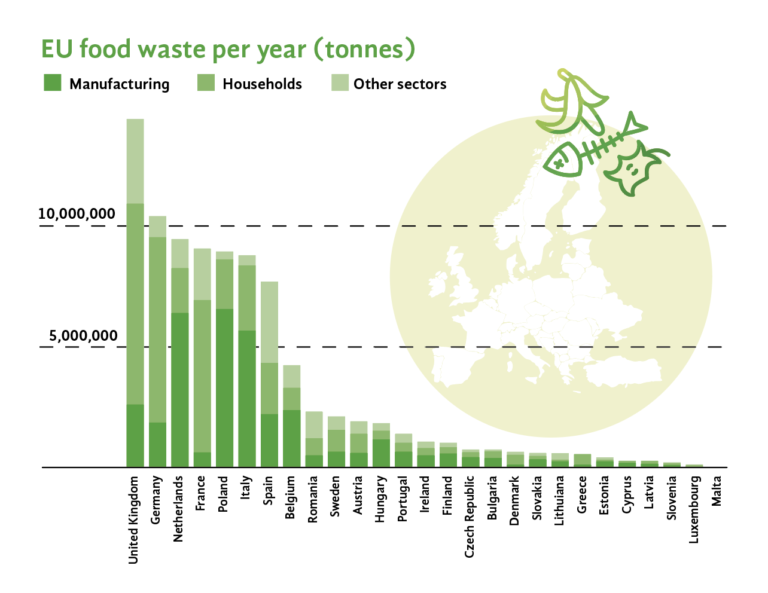Unlocking the Value of Digestate
The global food system is responsible for 1/3 greenhouse gas (GHG) emissions. Organic waste streams from industrial processes, agriculture, food production and other human activities offer a variety of opportunities to create value. Using anaerobic digestion (AD) plants, organic waste that otherwise would end up in landfill can be transformed into renewable biogas and digestate.
Digestate, is a liquid fertiliser containing valuable recovered nutrients and fibre that farmers can use to support crop growth. But, its long-term impacts on soil, ranging from acidification to decreased worm populations, are only now becoming apparent.
However, for small farmers, processing digestate to avoid these harmful long-term impacts is currently not an option due to lack of available, cost-effective equipment. With climate, waste, energy and circular economy policies all driving growth of the AD sector worldwide, there is now an urgent need to address these major issues.

On the Road to Future Circular Bioeconomy
What if a mobile solution equipped with all the crucial technologies could supply farmers directly with digestate-derived fertilisers and soil amenders tailored to their soil and crop requirements? Sounds kind of futuristic? Well, this could soon become reality…

The project
gathered partners from Greece, the UK, Italy, Romania, Malta, the Netherlands, Germany and China to develop an innovative small-scale tech solution designed to recover nutrients from digestate for formulation into high performance bio-fertiliser products.

The project took an original, disruptive and creative approach, tailored to both rural and urban areas.
At the heart of the project
lies the critical collaboration between EU and Chinese research and technical partners, co-designing an innovative approach to digestate valorization. NOMAD´s strategy could lead to pioneering changes in the way digestate is used in future circular bio-economies, making small biogas plants more viable, with the potential of scaling up to serve larger plants.
Solutions
Mobility. Modularity. Circularity.
These unique features support versatile business models for decentralised rural and urban anaerobic digestion plants as well as the flexibility to convert a range of digestates into high quality organic products.
NOMAD includes
Trailer 1: A digestate collection vehicle
to collect, pasteurise and separate the digestate fractions
Trailer 2: A modular, trailer-based nutrient recovery and antibiotic removal unit
to create biofertiliser, soil amender and irrigation water
Validated post-treatment options
for recovered sludge
The project´s objective is to reduce the total volume of digestate by 85-90%. This will be achieved by separating it into three streams:
In line with the EU bio-economic strategy, NOMAD’s innovative mobile approach fosters a vibrant organic circular economy model that has the potential to be widely replicated across rural, peri-urban and urban areas.
Impacts
Anaerobic digestion could play an important role in future circular bio-economies with NOMAD capturing the full value of organic wastes across catchment areas for local reuse. For this to happen, supporting infrastructure and intelligent centralised services must become available.
NOMAD´s smart, mobile digestate technology could be key to reducing the overall cost, complexity and footprint of small plants thus, dramatically improving their economic viability.
For the end user, the project will deliver a robust solution that reduces the risks and challenges associated with digestate. With a payback period of 2.5 years, the technology will boost circular bio-economies by expanding enterprise opportunities, improving resource-efficiency and supporting sustainable agricultural practices to create prosperity and quality employment in rural and urban areas.
Additional market impacts
Urban areas offer great potential for micro-AD solutions.
The Food and Agriculture Organization of the United Nations estimates that 1.6 billion tonnes of food waste is produced worldwide every year, with serious consequences for the climate. The study underlines the urgent need to improve the management of organic municipal waste, as 70% of the world population is expected to live in cities by 2050.
NOMAD could help enable the challenging, urban AD market by managing surplus digestate in an environment with limited space for food production.
NOMAD´s economic and operational benefits at a glance
Improving the economics of small AD plants
by creating new revenue streams
Eliminating or substantially reducing pasteurization costs
for individual plants
Reducing digestate storage capacity required
Reducing digestate disposal costs
Extending value to other available waste by-products
Expanding commercial opportunities
through circular resource management
Reducing fertiliser, soil amender and water costs,
by recovering them as by-products from waste
